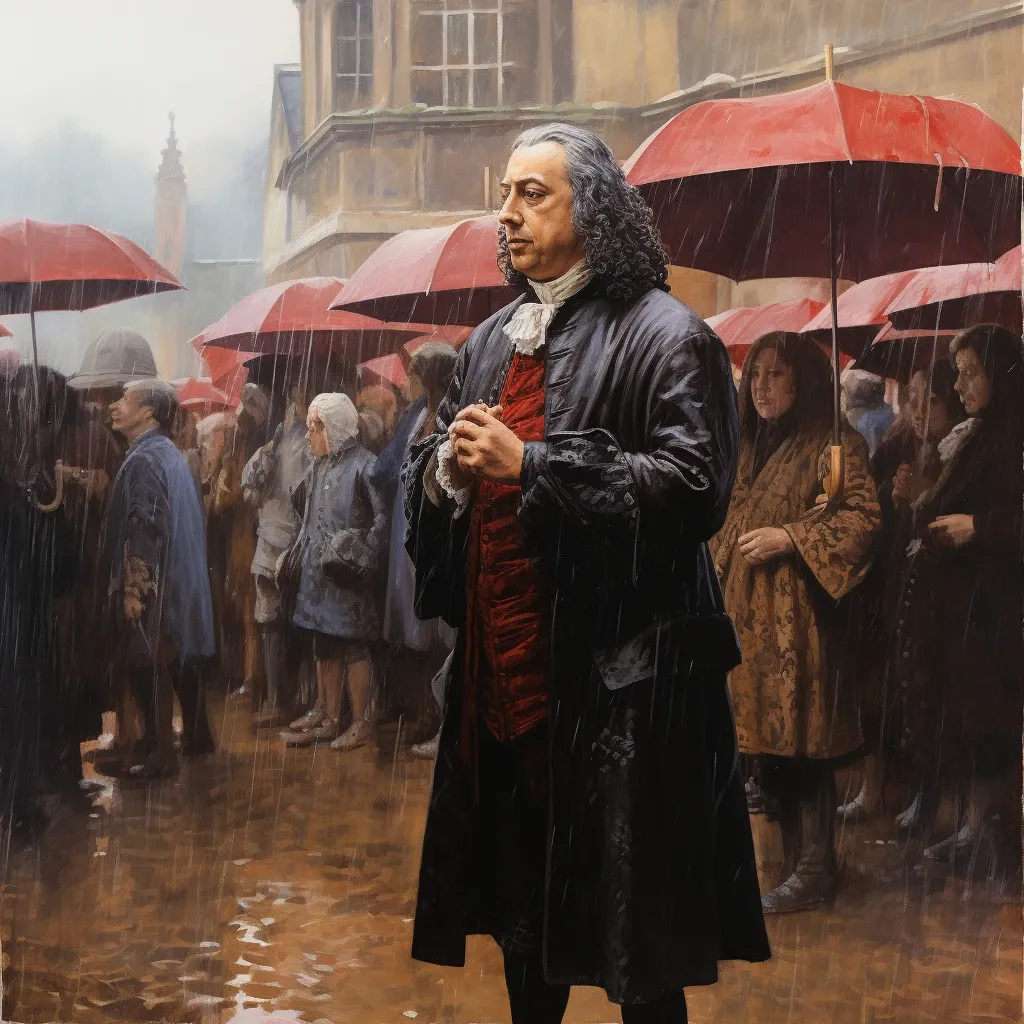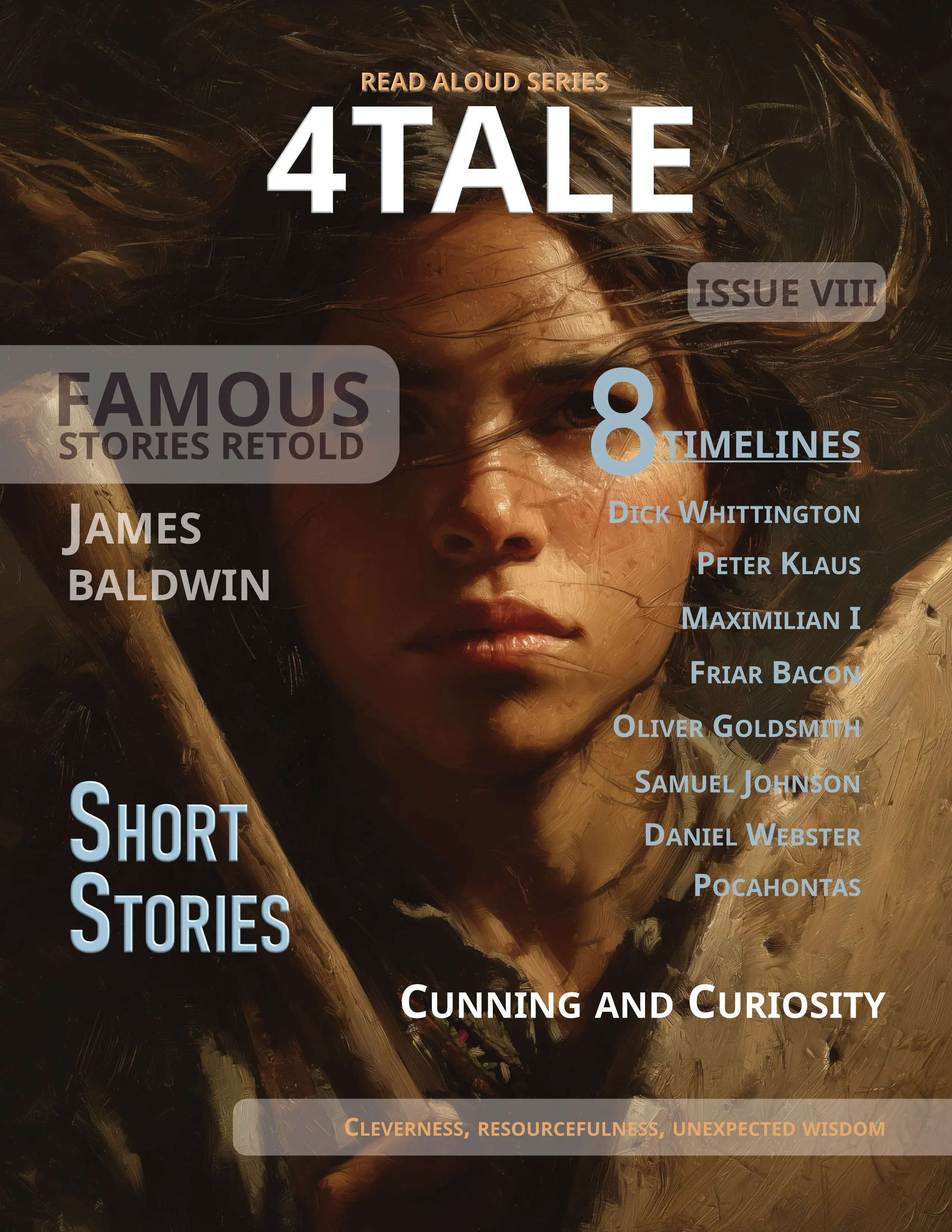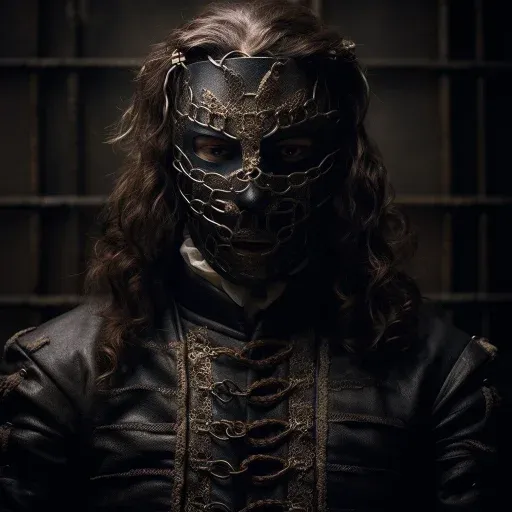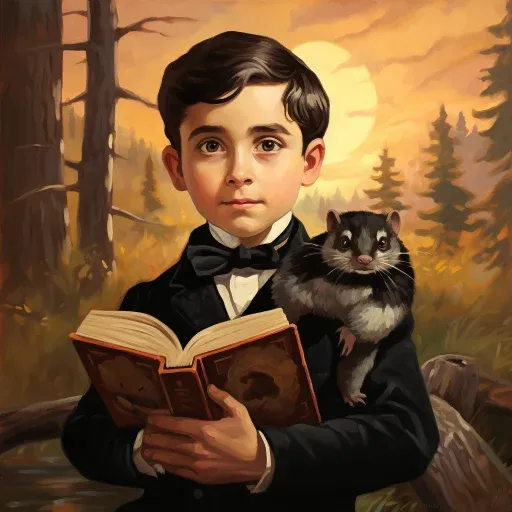BY JAMES BALDWIN
Johnson and His Father
Famous Stories Retold: Story 11 of 30

Heading

Father’s Request: Samuel Johnson's father, who owned a bookshop in Lichfield, England, asked Samuel to attend the market in Uttoxeter, but Samuel refused, preferring to study Latin classics instead.
Literary Achievement: Samuel Johnson went on to become one of the most famous literary figures in England, known for works such as "Rasselas" and the "Dictionary of the English Language".
A good book we like, we explorers. That is our best amusement, and our best time killer
- Roald Amundsen, Explorer
Samuel Johnson: Remorse and Redemption's Tale
Immerse yourself in the profound story of renowned British author, Samuel Johnson, whose lingering regret from a youthful misstep teaches a powerful lesson in remorse and redemption. This tale, steeped in the charm of a Lichfield bookshop and the bustling market of Uttoxeter, reveals the emotional weight of a single event that shaped Johnson's life. As we unravel this poignant narrative, you'll discover how a moment's disrespect can resonate through a lifetime, and how the path to redemption may be walked at any age. Join us as we explore Johnson's heartfelt act of contrition that continues to echo through history.
The Young Samuel Johnson and His Early Life in Lichfield
Samuel Johnson, a revered British author and lector, began his life in the quaint city of Lichfield. Born in 1709, Johnson was the first child of Michael Johnson, a bookseller, and his wife, Sarah. Samuel's early years were spent in the comforting embrace of books, with his father's bookshop serving as his playground. This environment fuelled his passion for literature and shaped his future path. However, Samuel's youthful days were also marked by an incident that left a lasting impact on his life, shadowing him with profound regret.
The Bookshop: The Heart of the Johnson Family
The Johnson family's bookshop was a landmark in Lichfield. Managed by Samuel's father, Michael, the bookshop was not just a business but the heart and soul of the family. Within its walls, young Samuel was introduced to the enchanting world of literature, which shaped his intellectual growth and fostered his love for the written word. The bookshop was a place of joy and passion, but it was also the backdrop for an incident that would sear itself into Samuel's conscience, leading to a life-long remorse.
Dive Deeper 'Timeless Wisdom' Podcast
Video with Captions and Visualizer
The Rainy Day Incident: A Turning Point in Young Samuel’s Life
A particular rainy day marked a turning point in Samuel's life, an incident which he would remember with deep regret. When his ailing father asked him to attend the market in Uttoxeter on his behalf, Samuel, engrossed in a book, chose to ignore the request. This decision forced his father to brave the heavy rain and cold to fulfill his duties. This incident represented a moment of neglect and disrespect towards his father, a moment that Samuel would spend the rest of his life atoning for.
The Repercussions of Ignorance: Samuel's Father's Journey in the Rain
The effects of Samuel Johnson’s disregard for his father's request were immediate and heart-rending. Given his frail state, the journey to Uttoxeter market was a daunting one for the ailing old man. Yet, in his unyielding determination to keep his bookshop running, he bore the discomfort of the rain-soaked trip. The image of his father braving the elements due to his own indifference left a lasting impression on the young Samuel. This incident served as a turning point, igniting in him a sense of responsibility and respect towards his parents, and by extension, towards all elders.

The Return to Uttoxeter: A Public Display of Penance
Fast-forward fifty years, Samuel Johnson, now a celebrated author and lector, revisited the site of his youthful negligence. In an act of public repentance, he stood in the rain at the Uttoxeter market, mirroring the difficult journey his father had undertaken due to his irresponsibility. This was not a fleeting act of remorse, but a profound demonstration of his regret. Samuel chose to retrace his father's steps, experiencing first-hand the hardship and discomfort his father had endured. This act underlined his recognition of his earlier mistake and his commitment to make amends.
The Lingering Ghost of Past Sins: Samuel's Lifelong Regret and Redemption
In the evening of his life, the memory of that rainy day remained vivid in Samuel Johnson’s mind. Though he had achieved fame and respect, the ghost of his youthful disrespect towards his father continued to haunt him. It was a poignant reminder of his past mistake, a regret he lived with throughout his life. However, his act of penance at Uttoxeter market was a powerful testament to his redemption. His story serves as a timeless lesson on the importance of respect for one’s elders and the deep-seated impact our actions can have on our conscience. Samuel's tale is a stirring reminder that it's never too late to acknowledge our mistakes and seek redemption.
Conclusion
This tale of Samuel Johnson is a profound lesson in remorse and redemption. A youthful mistake, a missed chance to help his ailing father, became a lifelong regret. However, Johnson's public act of penance at Uttoxeter market, half a century later, is a touching display of atonement. His story serves as a powerful reminder of how a moment's disregard can echo through our lives, and that it's never too late to seek redemption. Johnson's heartfelt tale of remorse continues to resonate, reminding us to value every moment and interaction with our loved ones.





